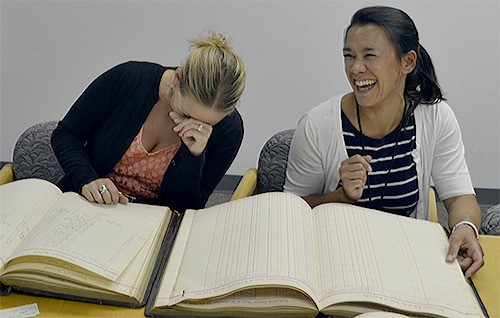MARYSVILLE – The first law passed in the town of Marysville, before it even became a city, was on April 4, 1891 was to ban prostitution.
How do we know? Because the city recently found some ledgers in a city vault dating back 125 years.
The first ordinance made it illegal to practice prostitution or lewdness. The fine was no less than $20 and no more than $100.
The second law made it mandatory for dogs to have a license. The cost was $2 in 1892.
Law No. 3 was an issue the city still deals with today. It banned peddlers, hawkers and auctioneers.
No. 4 had to do with regulations regarding bowling alleys and gaming tables.
Oddly enough, if you look again at No. 4, the fifth law deals with preventing and punishing gambling.
Ordinance 6 set the salaries of officers, up to $40 a week.
Law 7 set the date of council meetings at the second and fourth Saturdays of the month.
No. 8 set the meeting place, which was the schoolhouse.
Law No. 9 established the annual practice of paying property taxes.
And Law No. 10 began the construction and the operation of the railroad.
The first volume of laws was 360 handwritten pages and ended on April 10, 1914.
Records officer Tina Brocks said the two volumes of ordinances will be sent to the state archives office for preservation.
“They’re kind of falling apart,” she said.
She plans to scan the pages and give the originals to the state.
The other ledgers that were found, which deal with business transactions, she hopes will be taken by the Marysville Historical Society and placed in their new building near Jennings Memorial Park.
Those volumes have other interesting information. Such as:
•Harry Matthews didn’t pay his fine in 1907 but he said he was going to get out of town.
•The Marysville Globe did some printing for the city and was paid $2.50.
•Yearlong retail liquor licenses cost businessess anywhere from $300 to $1,000.
•James Comeford, for whom Comeford Park is named after, was listed for making a business transaction in 1892.



